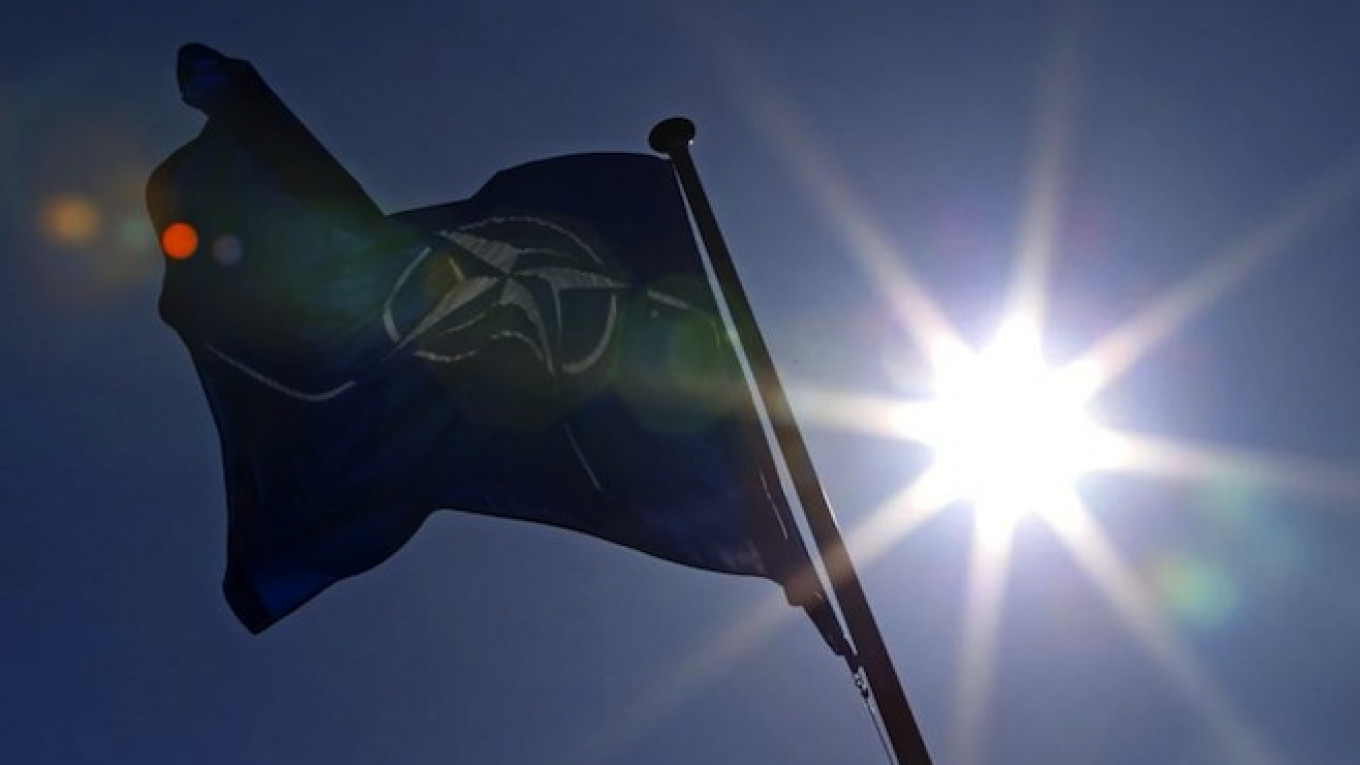
NATO’s former Deputy Supreme Allied Commander, General Sir Richard Shirreff’s new book, “2017: War With Russia,” is a work of fiction. But its subject — a clash between NATO and Russia as early as next year — is not completely fanciful.
When Russia attacked Ukraine in 2014, it also attacked the Helsinki-based security order of Europe. In place of this system, President Vladimir Putin is calling for a revived Yalta system, based on spheres of influence and respect. He also has invoked the borders of historic Russia and proclaimed a right to “defend” Russian “compatriots” abroad.
And if treaties and agreements are not sacrosanct to the Kremlin, why should NATO borders be sacrosanct? It is only reasonable that NATO’s Baltic allies ask this question and that others, beginning with Turkey, do so as well.
Their concerns are heightened by military developments as significant as today’s political ones. Since the war with Georgia in 2008, Russia has made a steady, cumulative investment in the capacity to wage local and regional war throughout the interior and on the periphery of the former U.S.S.R. This means full-spectrum, non-linear war, from non-attributable attacks by “polite little men” to first use of nuclear weapons. It also means information war, from disinformation to cyber attacks, and a coordinated effort to mobilize the state.
What is the purpose of the investment? The short answer is to wage proactive defense against geopolitical and civilizational encirclement by the West. That states on Russia’s periphery might welcome Western encroachment is grist to the mill of those in Russia who assess threats and respond to them. Inside the Kremlin’s febrile world, an unbroken chain of malign intent connects NATO and EU enlargement, humanitarian interventions, colored revolutions and regime changes, culminating with Russia itself. To ask in these circumstances whether Russia’s policy is offensive or defensive is to play with words.
Today the Baltic states are threatened politically. The aim of Russian policy is to persuade them that, inside or outside the EU and NATO, they lie in a grey zone and should behave accordingly. To this end, military-force groups with a capacity to seize Riga and Tallinn in 60 hours are an asset, even if it would be folly to employ them in practice. Until NATO takes steps to rectify the military balance, Russia will use fear as a weapon to undermine the political balance.
But what is the risk that the Baltics will be attacked militarily? Since NATO cannot know, it must not allow a dangerous imbalance of forces to arise. Unfortunately, it already has arisen. From 1991 to 2008, the West believed there would be no military threats in Europe, and national armed forces were restructured accordingly. The impact of the Georgian war on these orthodoxies was minimal. But Crimea’s annexation has launched an intellectual revolution. Those at its cutting edge are realists who know that vulnerabilities cannot be repaired by summit declarations and band-aids.
They also know that Russia’s weaknesses are as telling as its strengths. Today, Russia has an enhanced version of the army that Defense Minister Sergei Shoigu’s predecessor, Anatoly Serdyukov, aspired to build. The irony is that he was the first Russian defense minister to remove NATO as the baseline of Russian defense sufficiency.
The core of today’s military capability lies in 30-40 maneuver units, nuclear and dual-use strike systems and multi-layered air defense. That is a formidable capability for limited conflict, but it is not the capability Russia’s General Staff would design for full-scale war against NATO. Russia’s ambitious longer-term plans confirm as much. But these plans are running into the usual Russian buffers — human, industrial and institutional — and not all of them can be planned out of existence, least of all in a damaged and deteriorating economy.
Therefore, the challenge for NATO is no different than it used to be in West Berlin: to persuade Russia that any war means full-scale war. To this end, it is not necessary to deny Russia a victory in the Baltic states. It is necessary to deny it a quick victory. This is a doable task, but that does not mean it will be done. There also is no certainty that Putin’s Chekist testing and probing of weakness will not provoke a tougher response than he can safely manage.
James Sherr is Associate Fellow, Chatham House
A Message from The Moscow Times:
Dear readers,
We are facing unprecedented challenges. Russia's Prosecutor General's Office has designated The Moscow Times as an "undesirable" organization, criminalizing our work and putting our staff at risk of prosecution. This follows our earlier unjust labeling as a "foreign agent."
These actions are direct attempts to silence independent journalism in Russia. The authorities claim our work "discredits the decisions of the Russian leadership." We see things differently: we strive to provide accurate, unbiased reporting on Russia.
We, the journalists of The Moscow Times, refuse to be silenced. But to continue our work, we need your help.
Your support, no matter how small, makes a world of difference. If you can, please support us monthly starting from just $2. It's quick to set up, and every contribution makes a significant impact.
By supporting The Moscow Times, you're defending open, independent journalism in the face of repression. Thank you for standing with us.
Remind me later.


